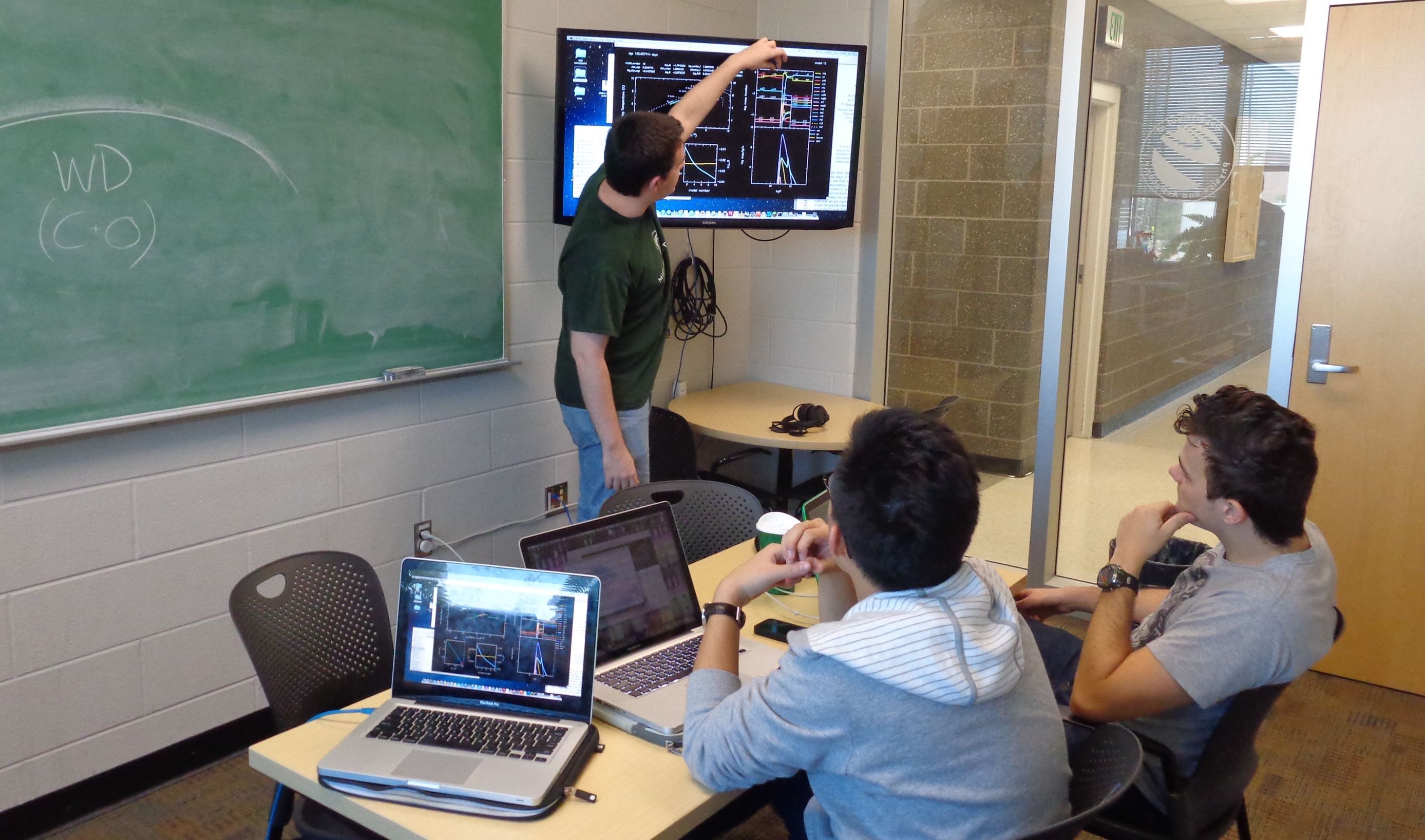Undergraduate
What is astronomy?
Astronomy seeks to understand the cosmos—in the words of Carl Sagan, "all that is or ever was or ever will be." How did the matter we see around us come into being? What is the nature of the unseen dark matter and dark energy that guide the formation of galaxies? Are planets like Earth common, and is there life elsewhere in the universe?
Contemporary astronomy is generating new discoveries at an astonishing pace. When today's typical college freshman was born, we had just discovered a few planets outside of our solar system; since then astronomers have discovered thousands of new worlds. Also within that time astronomers have found that the expansion of the universe is accelerating. Observations are witnessing the turning on of galaxies when the universe was only a fraction of its current age. New and unusual stellar explosions have been discovered that challenge our paradigms of stellar evolution.
What is the undergraduate program like?
Our program combines a background in physics with courses on stellar astrophysics, galactic evolution and cosmology, and observational techniques. Along the way, you will learn valuable skills in computing, data analysis, and scientific communication, and you will have opportunities for individual research projects. All astrophysics majors write a senior thesis, which involves either an in-depth exploration of a specific topic in astronomy or original research.
MSU's undergraduate astronomy program is one of the largest in the U.S., which provides opportunities to meet students with similar interests and goals.
The astronomy and astrophysics faculty have a reputation for excellent teaching. Many of the faculty have won awards for excellent teaching, and Professors Donahue and Voit are co-authors of a best-selling textbook.
What opportunities are there outside the classroom?
Many MSU astrophysics majors take the opportunity to do research through the MSU Observatory Research Program (MORP) or with individual faculty members in the astronomy, high-energy physics, or nuclear astrophysics research groups. We also have an active Astronomy Club. You can receive academic and career mentorship through the Stellar Mentorship Program. This page of awards and fellowships may be of interest.
What can I do with my undergraduate degree?
While some of our astronomy graduates pursue a career in professional scientific research by enrolling in Ph.D. programs, astronomy graduates work in a variety of fields, from tech to aerospace to finance. For more information on astronomy careers, see the AAS careers site.
